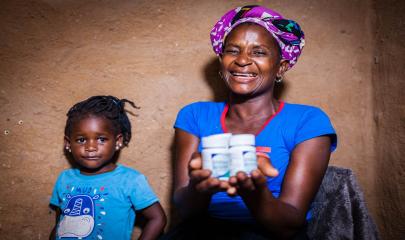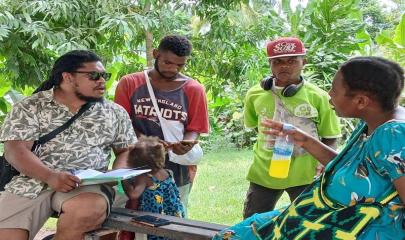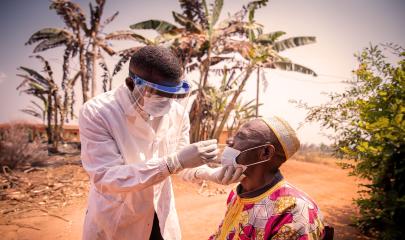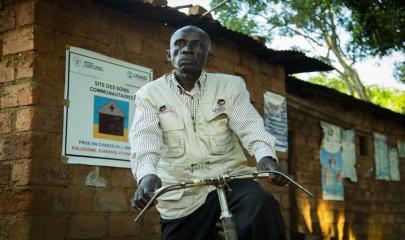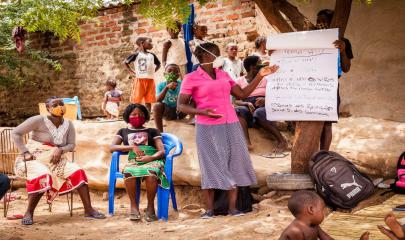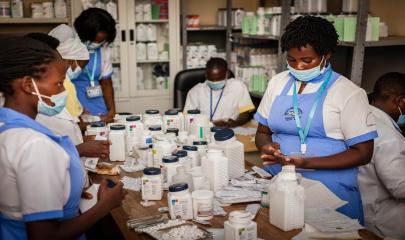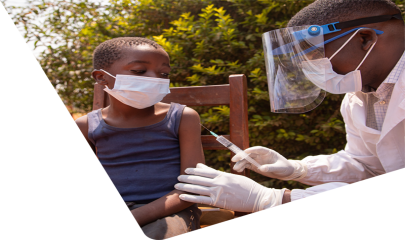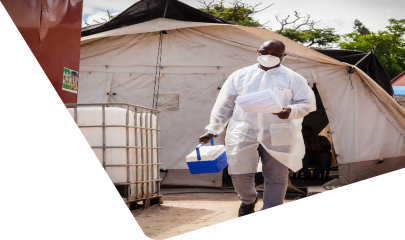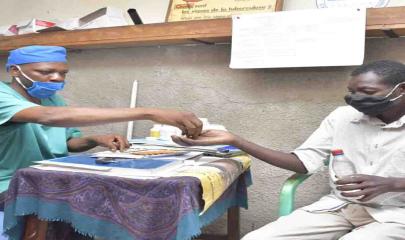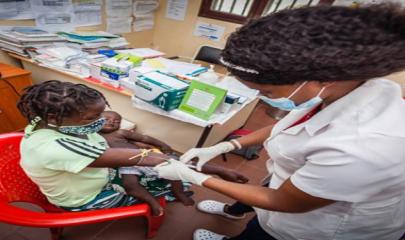Authors
Sahra Ibrahimi, Leon Kadiobo, Narcisse Embeke, Houleymata Diarra, Godéfroid Tshiswaka, Eric Mukumena & Bettina Brunner
A new peer-reviewed article in Global Health Action by former Abt Global staff examines how consistently frontline health workers in the Democratic Republic of the Congo (DRC) follow the country’s National Malaria Guidelines for case management. The study reports generally high adherence—approximately 80% or higher—for the use of rapid diagnostic tests (RDTs) and for administering recommended treatment, particularly among children under five. At the same time, the authors identify targeted opportunities to improve program performance: more accurate diagnosis, more consistent and timely patient follow-up, and improved availability of RDTs at point of care.
These findings matter because DRC carries one of the world’s largest malaria burdens, and consistent application of national guidance is central to saving lives and protecting health-system capacity. The results point to practical levers that implementers and ministries can use to close remaining gaps—such as supportive supervision to reinforce clinical decision-making; ensuring reliable RDT supply and distribution; and strengthening simple follow-up protocols to confirm recovery and catch treatment failures early. Together, these steps can help translate national policy into consistent, high-quality care at facility and community levels.
Global Health Action - Volume 18, 2025 - Issue 1


